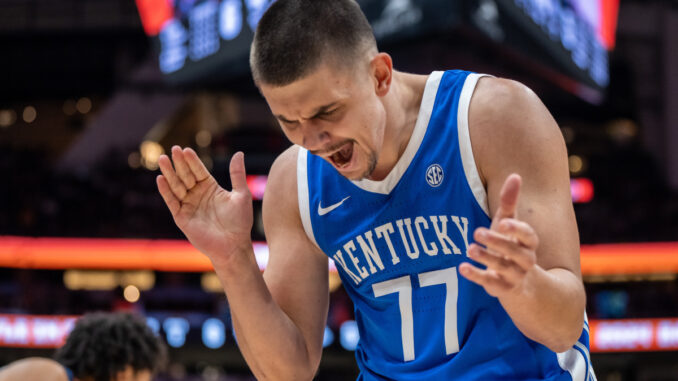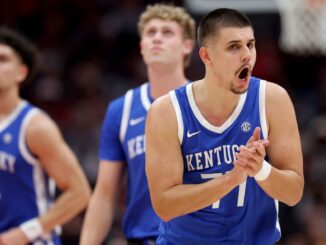
Ex-Wildcat Kerr Kriisa’s Transfer Sparks NIL Controversy: Who Else Is Cashing In?
Kerr Kriisa, the Estonian point guard known for his sharpshooting and fiery demeanor, has once again made headlines—not for his on-court prowess, but for the financial whirlwind surrounding his latest transfer. After stints at Arizona, West Virginia, and Kentucky, Kriisa’s recent move has ignited debates about the evolving landscape of Name, Image, and Likeness (NIL) deals in college basketball.
During his time at West Virginia, Kriisa reportedly secured a $500,000 NIL deal, which included a new truck from a local dealership. This substantial agreement raised eyebrows, especially considering the NCAA’s previous restrictions on international athletes receiving NIL compensation. Kriisa’s deal highlighted the complexities and loopholes within the NIL framework, prompting discussions about fairness and regulation.

The situation escalated when reports surfaced of Kriisa signing a four-year contract worth $41.9 million with Louisville. Such a figure is unprecedented in college sports and, if accurate, would dwarf many professional contracts. However, it’s essential to approach this claim with skepticism, as no official confirmation has been provided by Louisville or Kriisa’s representatives. If true, this deal would further blur the lines between amateur and professional athletics, challenging the NCAA’s current NIL policies.
Kriisa’s journey underscores the rapid commercialization of college sports. As NIL deals become more lucrative, questions arise about the impact on team dynamics, recruitment, and the essence of collegiate athletics. While athletes deserve to profit from their talents, the NCAA faces mounting pressure to establish clearer guidelines to ensure equity and maintain the integrity of college sports.
As the NIL era unfolds, Kriisa’s case serves as a cautionary tale and a catalyst for necessary reforms in college athletics governance.

Be the first to comment